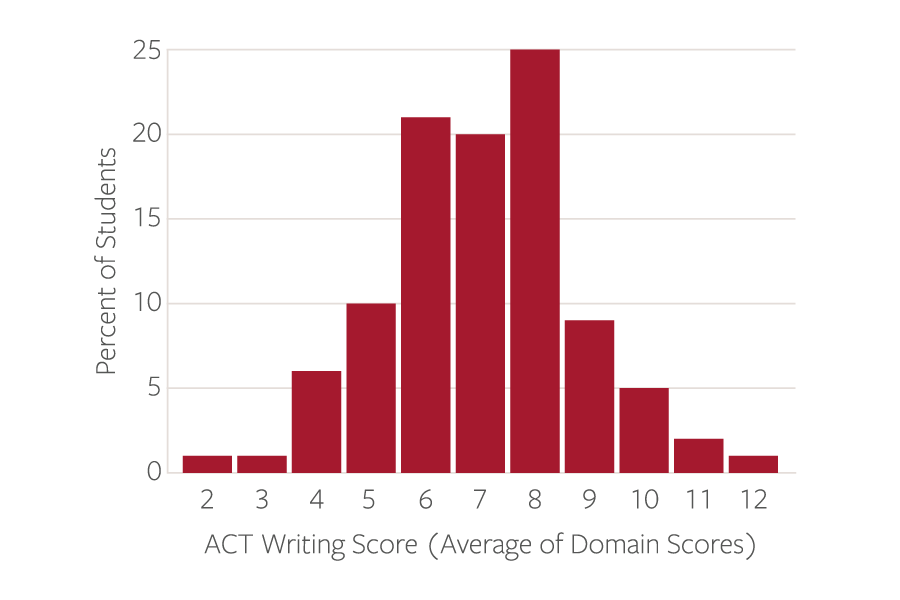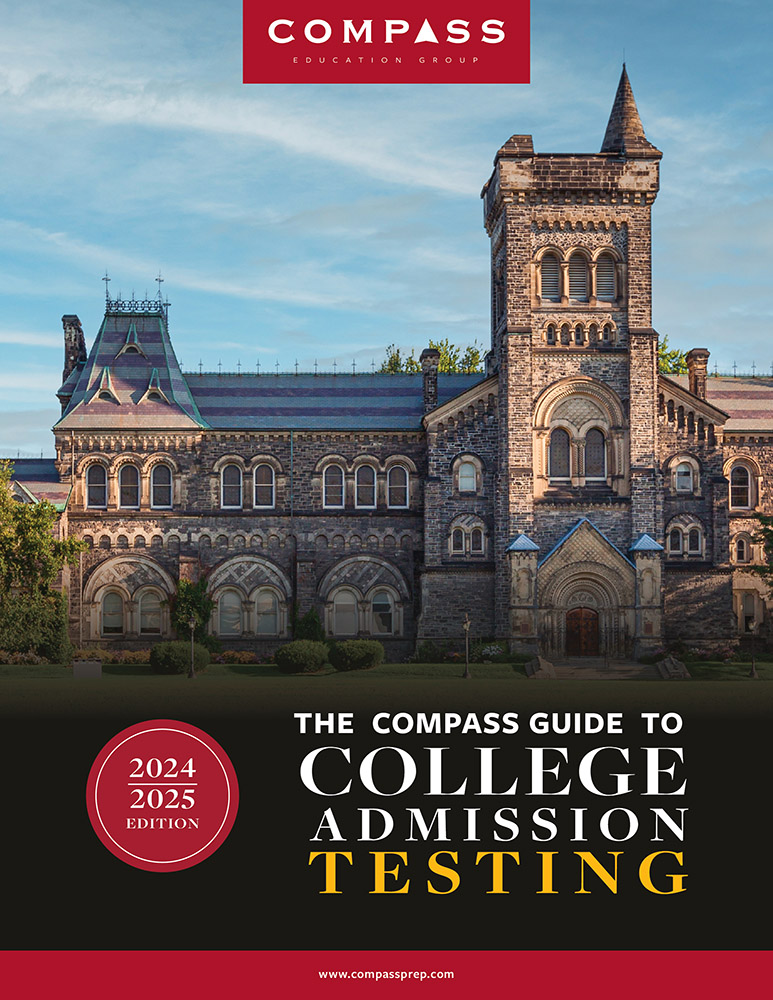On January 19th, 2021, College Board announced that they will no longer administer the SAT Subject Tests in the U.S. and that the Essay would be retired. Read our blog post to understand what this means in the near term and what the College Board has in store for students down the road.
Our articles on Subject Tests and the SAT Essay will remain on our site for reference purposes as colleges and students transition to a revised testing landscape.
A nearly universal truth of standardized test essays is that readers gravitate to the middle of the scale. For the SAT, readers favor 2s and 3s, so the most common combined scores are 4s, 5s, and 6s. For the ACT, readers most commonly settle on 3s and 4s, so overall student scores cluster at 6, 7, and 8. The one noticeable outlier is the SAT Analysis score, which tends to be a point below the other two SAT domain scores, with 4s more common than 5s.


Students who score well on the multiple choice sections of the SAT and ACT naturally expect to do well on the essay sections. Though there is an overall correlation (see tables below), the unreliability of essay scoring means that there is often a mismatch between expectations and reality. Even students scoring in the 33–36 range on the ACT are more likely to see 8s, 9s and 10s than 11s and 12s. Students scoring 1500–1600 on the SAT will receive more 5s and 6s than 7s and 8s.


Sources: College Board data class of 2017; ACT Research Explains New ACT Test Writing Scores; and Compass analysis
Colleges understand the limitations of the SAT Essay and ACT Writing Test. Even the most competitive colleges in the country have ACT Writing scores of 8–10 for the 25th–75th percentile of enrolled freshmen. In other words, at least 25 percent of students at Harvard, MIT, and Stanford did no better than almost half of all essay writers in the country.
How Low is Too Low?
It can be disconcerting to receive high scores overall along with a seemingly weak essay score. In general, Compass recommends that students only retake an exam if they feel confident that their other scores will improve. Students can use the tables above to find the typical essay score ranges that match up with their Composite or Total Scores. Students should not be concerned if they fall only a point below the corresponding ranges. However, if a student falls two or more points below the indicated range, feels confident in her ability to maintain or improve her scores in other areas, and is applying to competitive schools that require or recommend the essay, it may be worth retaking the exam. This is especially true if she has a plan for preparation and works with someone experienced in developing essay writing skills.

